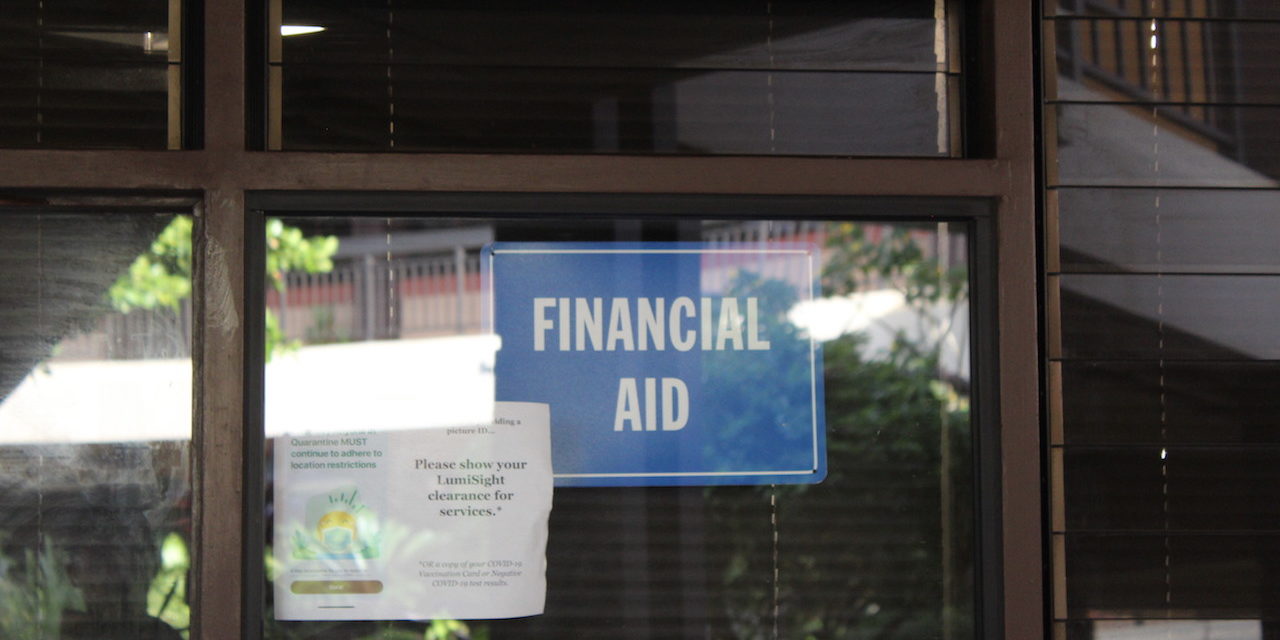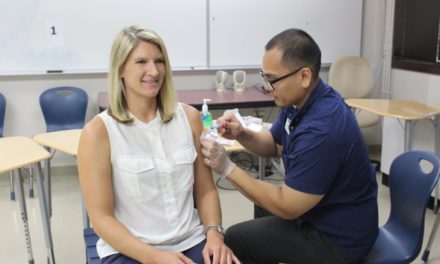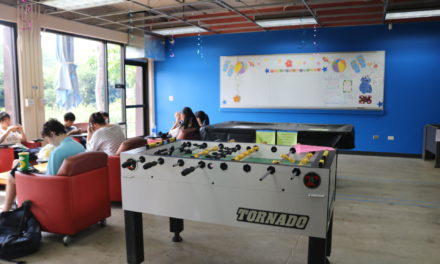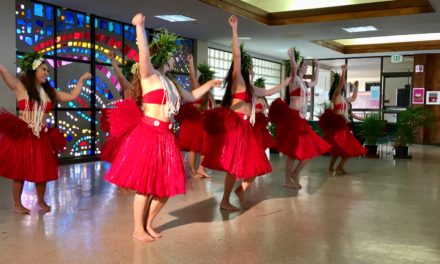Students are encouraged to take advantage of this “scholarship season” and apply for numerous scholarships. (Photo by Keahi Akina)
By Cameron Enomoto | Staff Writer
Native Hawaiian students will have the opportunity to attend a financial aid workshop series, presented by the Kapoʻoloku Program for Native Hawaiian Student Success and Kūlia ma Kapiʻolani, to learn about completing the Free Application for Federal Student Aid (FAFSA), verifying Native Hawaiian ancestry, and applying for scholarships.
The last two workshops will take place in ʻIliahi 231 in room ʻEhā on Monday from 9:30 a.m. to 11:30 a.m. and Friday from 1 p.m. to 3 p.m. Sign-ups for the workshops are available via Google Forms.
“We created the workshop series because when I was a student at KCC I had no idea about any of this stuff,” said Skye Kaupiko, the educational specialist for Kūlia ma Kapiʻolani. “It can be quite overwhelming, especially because it takes time to get all the necessary documents and fill out applications.”
Kūlia ma Kapiʻolani is a Native Hawaiian Career and Technical Education project sponsored by ALU LIKE, INC. and funded through a grant from the U.S. Department of Education. The project aims to support Native Hawaiian students who are pursuing degrees in CTE programs to graduate and begin a career in their chosen field.
“We’re in what I like to call ‘scholarship season,'” said Kaupiko. “Scholarship season is like taking another class. It’s having the time to sit down and get the FAFSA done and doing personal statements and whatnot, but you’re working towards having a free college experience.”
November is recognized as National Scholarship Month with most scholarships being open between November and January. Both Kūlia ma Kapiʻolani and the Kapoʻoloku Program stress the importance of students applying for scholarships and financial aid.
“One thing to note is that financial aid and scholarships are not the same things,” said Michaelyn Nākoa, the coordinator/counselor for Kapoʻoloku Program for Native Hawaiian Student Success. “Financial aid, which can be federal or state money that is administered through the Kapiʻolani CC financial aid office, is typically based on financial need and sometimes students’ heritage. Scholarships are usually by application and can be need or merit-based. This means that there is a set of criteria that is used to review applications.”
Kapoʻoloku provides a solid foundation for Native Hawaiian students by reinforcing the importance of education by promoting personal growth and development within the social, community, and cultural contexts of Hawai‘i’s history. The program created a financial aid and scholarship list that provides students with the necessary information needed to complete applications on time. Nākoa stated that prioritizing scholarships by the due date will allow students to complete as many as possible.
“Regardless of any type of scholarship, FAFSA is number 1,” Kaupiko said.
Prior to applying for scholarships, students must complete their FAFSA to determine their estimated family contribution. This number is used to find out if students are eligible for federal and additional financial aid opportunities.
“One of the scholarships Native Hawaiian students should apply to is the Kamehameha Schools College Scholarship,” Kaupiko said. “Applying for the Kamehameha Scholarship is a three-part thing, which is why it can get confusing. But the payout is that students can get pretty much their entire year covered for school.”
Students are also encouraged to apply for the Pauahi Foundation scholarships, which Kaupiko describes as a marketplace where different foundations and organizations come into one. Additionally, the Kapoʻoloku program has a tuition waiver for Native Hawaiian students and the Office of Hawaiian Affairs (OHA) has scholarships available as well as ALU LIKE, INC.
For students who are interested in the financial aid workshop but unable to attend, there are opportunities to meet with peer mentors and staff both over Zoom and in person. For more information, please contact Skye Kaupiko at skyek@hawaii.edu.






